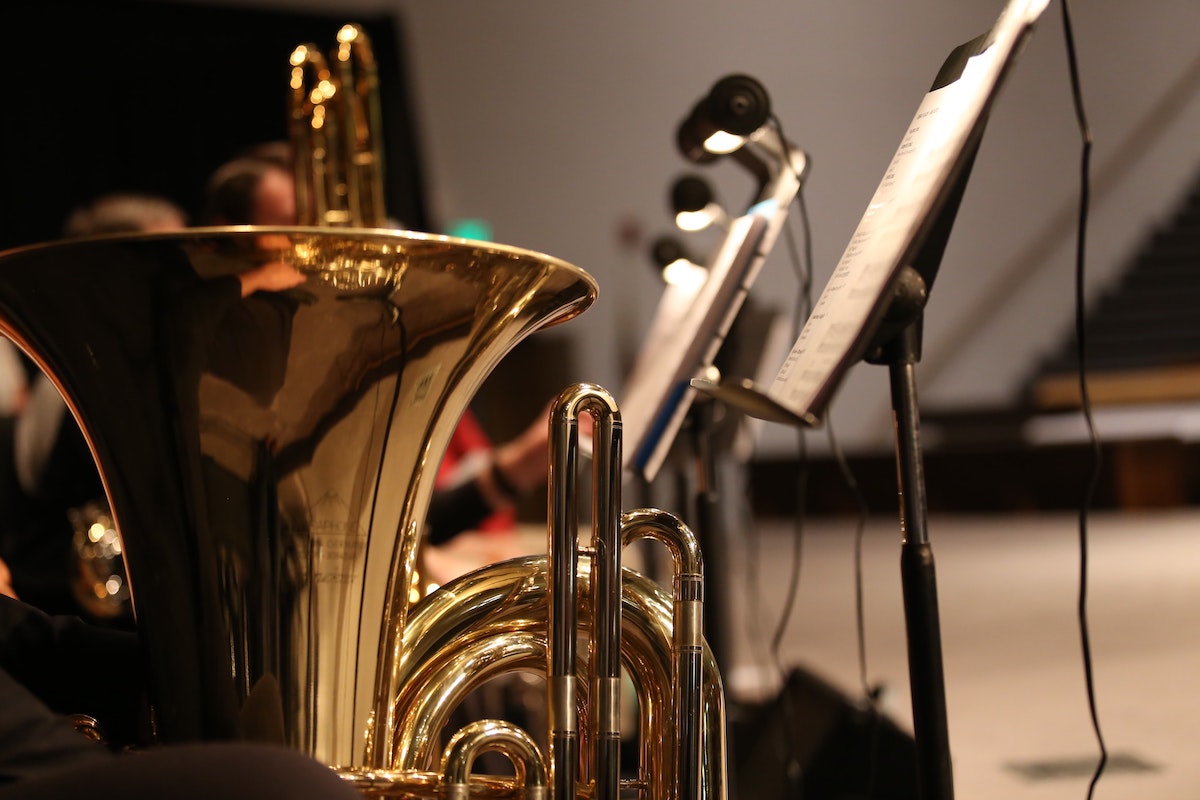By: Connie Golding
Skip to...
If you’ve ever embarked on group travel, you know a lot of working parts must come together to make the trip a success. You also know that a completely successful trip is a mythological legend that’ll never truly happen. It’s impossible to take a bunch of people, bus them around a unknown place, and expect everything to work out perfectly—not everyone will have a fantastic experience from beginning to end.
Nonetheless, many companies that operate group tours are very good at what they do—and travelers usually have a great time, looking back at the bumpy moments with humor.
But what happens when everything seems to go wrong? And what can we learn from the negative times to better improve group travel? My group trip to China in summer 2010 offers a great example of “everything that can go wrong, will go wrong.” Let’s get started.
Background and Planning for Group Travel—or Lack Thereof

Photo by Brian Matangelo on Unsplash
On this trip, 100 students and 20 chaperones from Alaska traveled to China for a music conference. The students came from all over Anchorage as a hand-selected youth orchestra, which I was a member of for four years in high school. While I’d just graduated from college, I was asked to go because they didn’t already have a tuba player and I spoke a minimal amount of Chinese. I’d always wanted to see China and was promised to be treated as an adult, so I had no worries going into it. My mother even decided to join as a chaperone.
The plan was to go sightseeing in Beijing for two days, travel to Shenzhen for about a week-and-a-half for the conference—in which many international school groups would take part—and then spend the final few days of our trip in Hong Kong. When I say this was the “plan,” I use that word very loosely. We later found out that the group members who developed the itinerary never truly verified everything we were to do.
There’s one more thing to preface before explaining how not to plan and execute a group travel experience: I currently work as a group sales manager for a historic site in Washington, D.C. and work with major tour companies worldwide. Looking back, I am certain that this trip not only was botched by the tour company, but it also was the failure of our group’s leadership for not being more hands-on, and instead dropping the ball on a few key points.
Lesson 1: Designate a Treasurer

Photo by Sharon McCutcheon on Unsplash
For those who read my earlier article, you’re familiar with Hezekiah the spider. He was just one small part of the experience. The trip started off well enough; we arrived in Beijing late at night and woke early the next morning to visit a jade museum and hike the Great Wall. We had two buses with amazing tour guides, and the first and second days went well.
We had our first breakdown when, 30 minutes before heading off to our evening event, we stopped at a bank that obviously was not expecting dozens of people to exchange U.S. dollars into Chinese yuan so soon before closing time.
Anyone who knows me knows that I adore order and precision. So, at the bank I took it upon myself to collect our money, make one massive exchange, and then distribute the yuan back out. Even after this decision was made, we were late to our next event and I ended up shortchanged on my own exchange because others were positive they should have a yuan or two more than what they got. They failed to take note of the exchange rate the bank offered, as well as the fees I had to pay to do the exchange.
This is where Lesson Number One comes in, and it is for people in your group helping to organize the trip, not the tour operator. Designate a treasurer to manage your money. Exchange everything at your local bank before leaving, and have the treasurer keep that money throughout your trip. Then, whenever someone in your group needs to exchange currency, they could go to the treasurer and complete the exchange directly rather than finding a bank and paying multiple fees over one trip.
If you’re worried about keeping track of the money and exchanges, bring a small notebook and paper receipts that the treasurer can give out for exchanges. Everyone will have a record, you’ll receive a standard exchange rate, and trust me—it will save you much time and heartache.
Lesson 2: Have More Than One Translator

Photo by Vincent Chan on Unsplash
For the most part, Beijing was amazing. We went sightseeing and shopping, ate delicious food, and then moved on to Shenzhen. We were separated onto two planes to Shenzhen, and this is where things started to get bad.
We had one group member that could speak Chinese fluently, and that person was on the second plane. I was on the first, and only spoke enough Chinese to get by. The first flight arrived to Shenzhen just fine, while the second was delayed until the next day due to an impending storm.
When the members of the first group arrived to what would be our new home for the next week-and-a-half, we’d expected a standard college campus. Nothing fancy—things like Internet, showers, and bed sheets. What we actually found was a high school campus with the infamous squatty potties, water spigots for showers, 10-story dorm rooms with no elevators, and armed guards at the entrance for our safety.
All this we could live with. The major issue was that our musicians with trombones, tubas, cellos, and basses were expected to keep their instruments in their 10th-floor rooms. We also had no bed sheets—only a thin, filthy mattress saturated with bedbugs. And thus it began.
We explained that we needed bed sheets and that our large instrument players either needed a locked room to put their instruments into or they needed a bedroom on the first floor. Unfortunately, those helping us at the camp—who were actually all very sweet and accommodating—spoke minimal English.
And this brings us to Lesson Two for putting together a group travel experience. Always make sure you have more than one translator. I did my best in the situation to translate, and in the end the large instruments were moved to first floor rooms, but we never did get the bed sheets.
A Major Breakdown
The next day, we found out the college campus we were originally scheduled to stay at dropped out at the last minute, and the high school campus was the only thing the tour company could find. Unfortunately, no one from the tour company ever visited the site before and were unaware of the interesting situation we and five other school groups were in. While there were some good moments—learning about Chinese instruments, taking a calligraphy lesson, making music with other local kids who’d never seen Western instruments, and playing an amazing concert to a sold-out house in a professional concert hall—there were many, many things that went wrong.
We were all warned not to drink the water without boiling it first, or consume raw food, like fruit, unless it had a thick shell. Even following these guidelines, half of our group got sick while staying at the campus (yours truly included) and almost everyone became infected with bedbugs. This was not the students’ fault, but instead the quality of the living conditions. Many of us had interesting encounters with wildlife—see the Hezekiah story—and some became so ill they were forced to stay in bed. Even with all this, I think the worst thing that happened to us was we didn’t have any music stands.
I know this sounds odd. But for 100 musicians expected to perform five concerts, missing music stands was a huge problem. The tour company assured us that certain percussion instruments and music stands would be provided, but they weren’t. Instead of the tour company offering to take care of the problem, we needed to find a music stand provider on our own, and our group ended up purchasing 50 stands out of pocket. We also had to beg our newly created Chinese contacts to find us some percussion equipment.
Luckily, we were able to navigate all of this, but by the time we played our final concert, we learned the trip had changed. We would not be going to Hong Kong, but rather staying at the campus in Shenzhen for another week.
That’s when we did something our group never anticipated we would need to do. We left the campus, abandoned the tour company, and went off on our own. After a group discussion, we moved to a very nice Marriott in the heart of Shenzhen, hired two coaches for the rest of the trip, enjoyed two more days in Shenzhen, and then headed off to Hong Kong<.
Lesson 3: Respect Your Group
After we left the tour group, the trip became exponentially better—but I need to give one last tip to adults running a student trip: you’re there for the students.
For background, I’m a very outgoing, goofy person who easily makes friends with people younger than myself. On this trip, I was a recent college graduate among a bunch of high school kids. It was only a few days before members of the orchestra were looking up to me as a sort of voice for the students, which I was happy to be because many of the adults were not listening to their requests.
During a public meeting, I threw out a suggestion for the day’s activities and a parent yelled at me in front of the whole group, no doubt attempting to put me into my place. Until that point I’d been treated as an adult, sat in on their meetings, and acted as a liaison for the students; to her though, I was “just” a student. I immediately rebuked her remarks and left the group to spend a free day with my mom.
When we arrived back at the hotel later that evening, we found there was a big falling-out between the students, who wanted to spend their day one way, and the adults, who wanted to spend it another way. In the end, I spoke to both the students and the adults to organize the day for fun and enjoyment.
In my current job, I have seen far too many situations in which children are left unattended or ignored so parents can have fun. Instead of enjoying the experience, the kids fend for themselves or conform to the chaperone’s plans. This trip to China was for the students, not the adults. The adults weren’t the ones who got up on stage and played for two hours to a packed house, all while ill with food poisoning. The students did.
A good way to make sure the younger voices are heard on a group trip is to create a council before you leave. Let’s make it two chaperones and two students: one adult and one student are chosen by the chaperones, while the other two are chosen by the kids. Add a fifth member to your council—a teacher or guide—and make these five the voice of the group, responsible for making decisions in any programming or difficult situations that may arise. This becomes a lesson in democracy and creates a group dynamic everyone can get behind.
Final Words
This story, while indeed stressful, is not meant to deter anyone from group travel or even from visiting China. Traveling with a buddy—or 30 of them—can be great when done properly. A few quick tips:
Always make sure your tour company is licensed and offers references.
Encourage group leaders to stay active in planning the itinerary.
As far as visiting China, I would advise everyone to do it! The Chinese are amazing people and the trip was never made worse by experiencing the culture, meeting new people, or seeing beautiful sites. I look back fondly on the experience and would visit China again in a heartbeat. I just may not go back with that tour company.
Finally, if you’re stuck on a trip seemingly designed by the devil himself, just remember that even though the moment may seem dark and full of despair, you will survive. When you come out on the other side, you’ll laugh and have some hilarious stories to tell at dinner parties.
Featured image via Unsplash.


